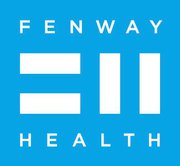Fenway Health Leads the U.S. in LGBT Health
Fenway Health, the Boston-based clinic that’s provided health care to the LGBT community in the city for more than 40 years, got a huge grant earlier this month that will help them enhance services for LGBT patients across the country. The $900,000 award from the United States Health Resources and Services Administration (HRSA) is the “largest grant that’s ever been given by a federal or private agency specifically for the health care needs of LGBT people,” says Harvey Makadon, who will oversee the grant’s implementation as the head of the clinic’s Fenway Institute, the division that focuses on research and education. The grant demonstrates the “increasing recognition that, like other vulnerable populations, LGBT people experience health disparities in a variety of different ways, and yet they’re largely an invisible population,” according to Makadon.
Health care disparities among LGBT patients have been widely documented: Just two weeks ago, the Journal of American Medical Association released a study which found that 1/3 of the nation’s medical schools fail to provide any clinical training to their students regarding LGBT health. Findings from a 2009 report by the Massachusetts Department of Public Health found that fewer LGBT patients in the state self-reported being in excellent or good health than their heterosexual counterparts, and the LGBT population surveyed showed higher instances of depression and suicidal thoughts. National research has found that gay men and lesbians use tobacco products more frequently than heterosexuals, and earlier this year, a new study in the journal Cancer found that there gay men are twice as likely to develop cancer as straight men.
The HRSA funding will allow the Fenway Institue to develop seminars and webinars for community clinics across the country that may not deal with large populations of LGBT patients. They’re also hoping to create a training program that will be incorporated into medical schools in the future. The goal, says Makadon, is to introduce quality information that can help physicians and clinicians realize these health disparities and better provide care to LGBT patients. “We hope that this is not only something that will allow us to develop teaching materials, but will raise awareness of this issue,” Makadon says.



